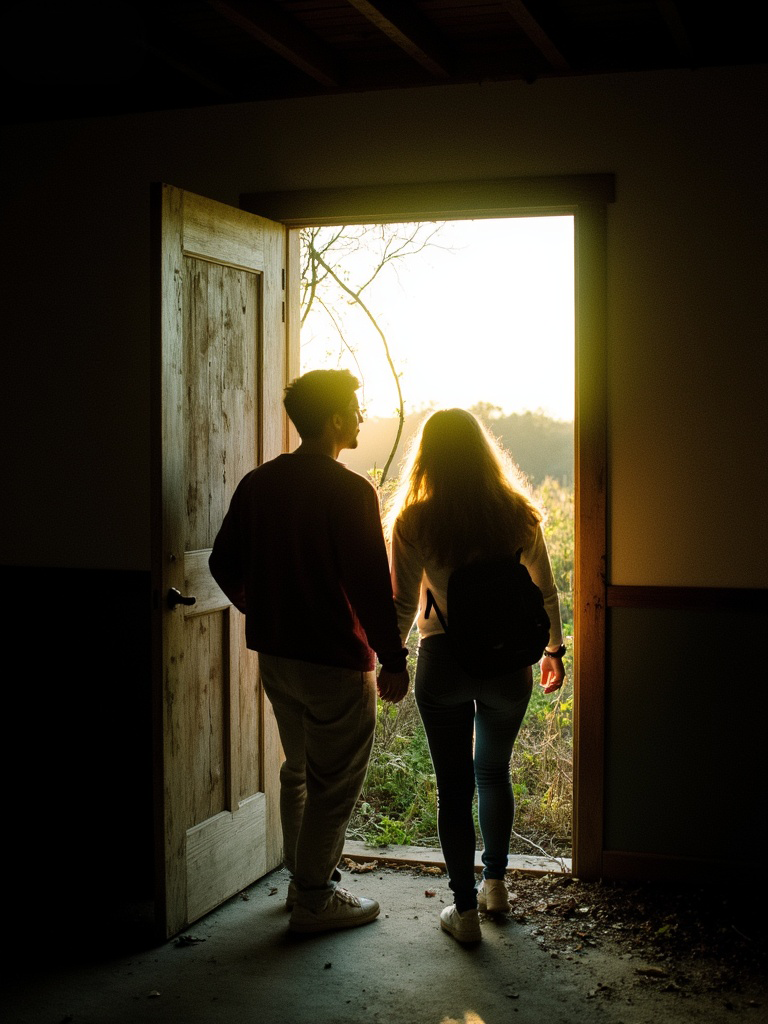The Listener
The world was a cacophony of airport announcements, rolling suitcase wheels, and fragmented conversations. To Leo, it was all just noise. He moved through it insulated, encased in a bubble of cool, polished metal and rich, lambskin leather. His headphones were not an accessory; they were a sanctuary.
He was on a solo trip to a coastal town he’d seen in a photograph—a place of cliffs and relentless waves. As the train carried him away from the city, he curated his journey. The frantic rhythm of a techno beat matched the blur of passing suburbs. Then, as the landscape opened into green hills, he switched to ambient soundscapes, the electronic drones somehow enhancing the pastoral serenity outside his window.
He arrived at the small station. The first thing that struck him was the sound—or the lack of it. The wind was a constant, low whistle, and the distant crash of waves was a deep, rhythmic bassline. Intrigued, he kept the headphones on but turned the music off. He walked the cobblestone streets, his high-fidelity drivers capturing the subtleties: the scuff of his own shoes, the chime of a bell over a shop door, the muffled conversation from an open window. He was listening to the town in high definition.
The path to the cliffs was steep. At the top, the wind roared, trying to tear the headphones from his head. He stood, facing the vast, grey expanse of the ocean. This was the moment he had traveled for. He opened his music app, scrolling for the perfect piece—a powerful, cinematic orchestral track he had saved for this. He tapped play.
But nothing happened. His screen flickered and went black. A drained battery.
A wave of panic, cold and sharp, washed over him. He was alone, on a cliff, with nothing but the raw, unfiltered world. The silence was deafening. No, not silence—it was a riot of sound he had been filtering out. The wind was no longer a whistle but a primal scream. The waves weren’t a bassline; they were colossal, thunderous punches against the rock face. The cries of the gulls were sharp, desperate shrieks.
He felt exposed, almost vulnerable. He went to take the headphones off, an instinct to shed the now-useless shell. But as his hands touched the ear cups, he paused.
He stood there, listening. Truly listening. He heard the intricate layers in the wind, the different tones of the water—a deep boom, a hiss of retreating foam, a gentle lap in a hidden pool below. He heard his own breath, steadying, and the beat of his heart syncing with the rhythm of the sea.
A woman with a dog walked by and smiled at him. He heard her say, “Bracing, isn’t it?” Her voice was carried away by the wind, but he caught it. He smiled back, a genuine, uncurated reaction.
Leo never put the music back on. For the rest of his trip, he wore the headphones, but they were empty. They became not a barrier, but a conduit. They focused his hearing, framing the world’s soundtrack without altering it. He listened to the rain on his rooftop, the chatter in a café, the quiet of a museum.
On the train home, as the city’s skyline emerged, the noise returned. He felt the familiar urge to retreat. But instead, he left the headphones around his neck. He had discovered that the most profound playlist wasn’t stored on a device; it was composed of the unedited, magnificent, and sometimes chaotic sounds of the world itself. He had gone on a journey to find the perfect soundtrack, and had returned having learned how to listen.

